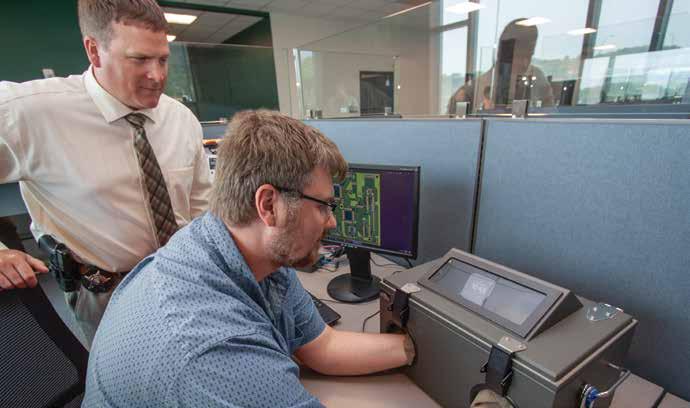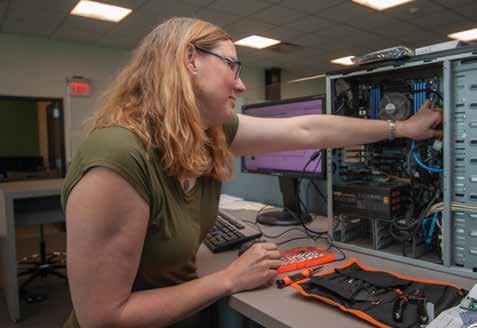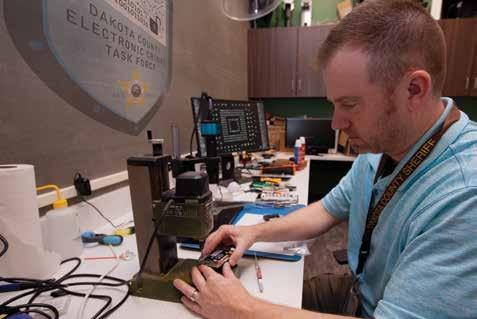
4 minute read
Dakota County Newsletter - Fall/Winter 2023
Partners in crime-fighting
Electronic Crimes Task Force makes the difference
Almost anyone can message a friend, play the latest game, find directions or stream a video — all with the device most of us keep in our pocket. But that smartphone can do a lot more — it can also help solve crime.
Who a person has talked to, where they’ve been and even what they’ve searched online can be valuable evidence to local law enforcement during an investigation.
The Dakota County Electronic Crimes Task Force is finding that digital evidence can help detectives and prosecutors prove cases and get criminals behind bars.
In 2022 alone, the task force worked on 319 cases and processed 580 devices, including cellphones, tablets, computers, external hard drives and more. They recovered about 76 terabytes of information — roughly the equivalent of 494 million pages or 38,000 hours of high-definition video.
Digital evidence can be the difference between a criminal conviction and someone getting away with murder. For example, a few years ago, a woman in West St. Paul was murdered in her apartment. Investigators suspected her boyfriend did it. He had been arrested multiple times on domestic assault charges, but always released. There was no physical evidence that he was in the area at the time of the murder.

Police received a warrant for the suspect’s smartphone. Investigators discovered he had taken pictures of himself and his deceased victim.
In a case with no witnesses and little physical evidence, detectives had found the “smoking gun” — a digital image saved in the cache of his Facebook Messenger. The data with the image showed it was his phone that took the image and had a date and time stamp during the period she was believed to be murdered. With the new evidence, the man pleaded guilty to murder and sentenced to 30 years in prison.
The Electronic Crimes Task Force, housed in the county’s SMART Center in Inver Grove Heights, is a partnership among 10 city police departments, the Dakota County Drug Task Force and the Dakota County Sheriff’s Office. Each entity provides either staff or funding in exchange for using task force services instead of sending devices to a state agency where it is unknown how long it will take to process. The task force manages its own case log, making sure high-priority cases are handled first.

To staff the task force, Dakota County employs one licensed detective and two forensic analysts. The cities of Burnsville and Apple Valley each allocate one full-time detective while the City of Lakeville provides a part-time detective. Seven other cities provide funding to equip the task force with the latest technology and training.
This approach is important. If agencies only offered funding, there wouldn’t be enough staff available to work cases. If everyone offered staff, the best technology and training wouldn’t be available.
Working together also helps reduce costs. Agencies aren’t duplicating efforts by purchasing the same expensive high-tech equipment and software. Specialized computers cost about $7,000. The task force has two different kinds of software to unlock devices, costing $20,000 and $35,000 a year. The latest training can easily reach $6,000 per person for one course. Budgeting for those costs can be a challenge for smaller police departments.
In addition, the partnership allows forensic experts to learn from each other and solve problems together, which wouldn’t happen if they were working alone.
Finding innovative ways to work with each other to keep our communities safe, save money and get results is what Dakota County does best. The Electronic Crimes Task Force is proof of that commitment.

